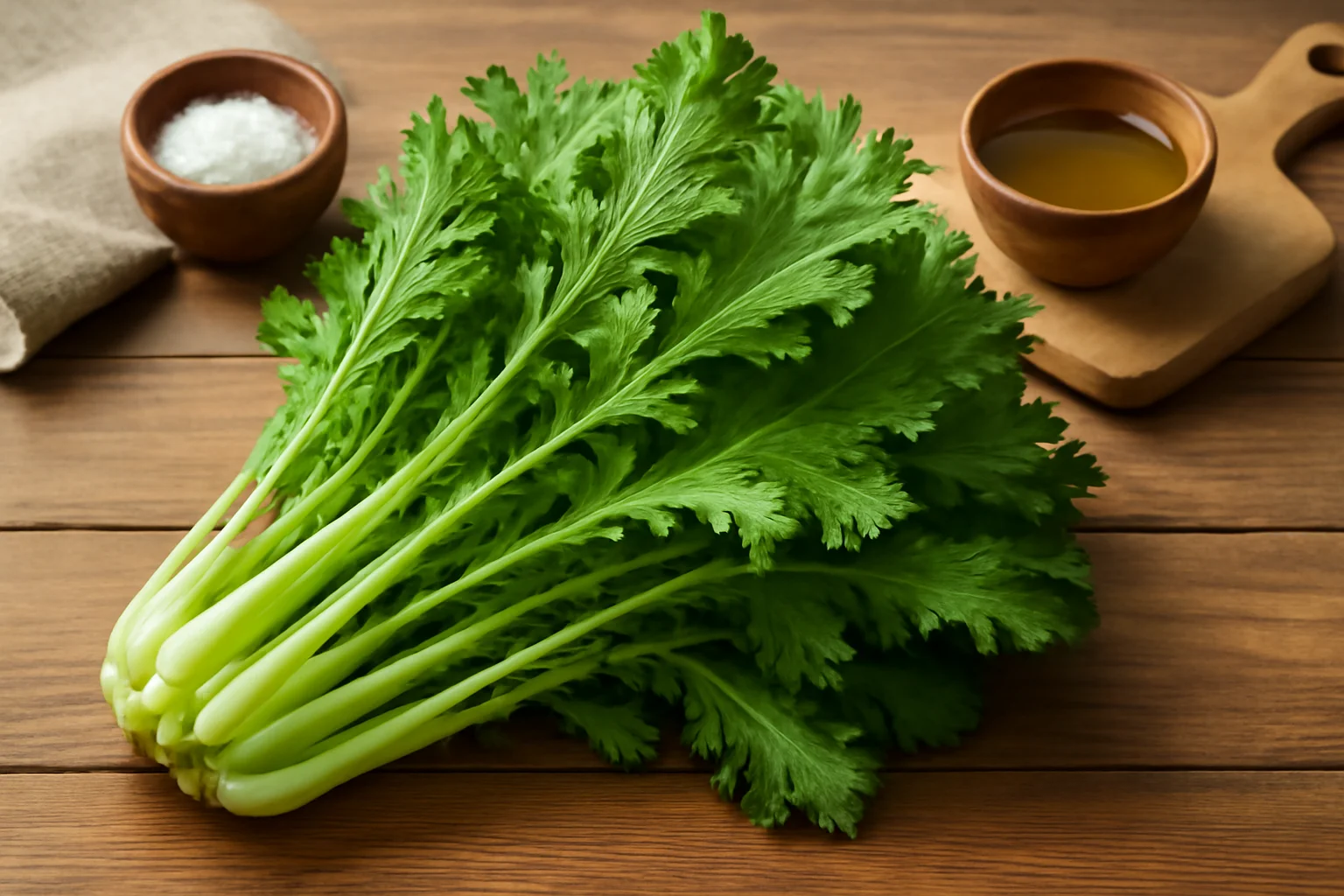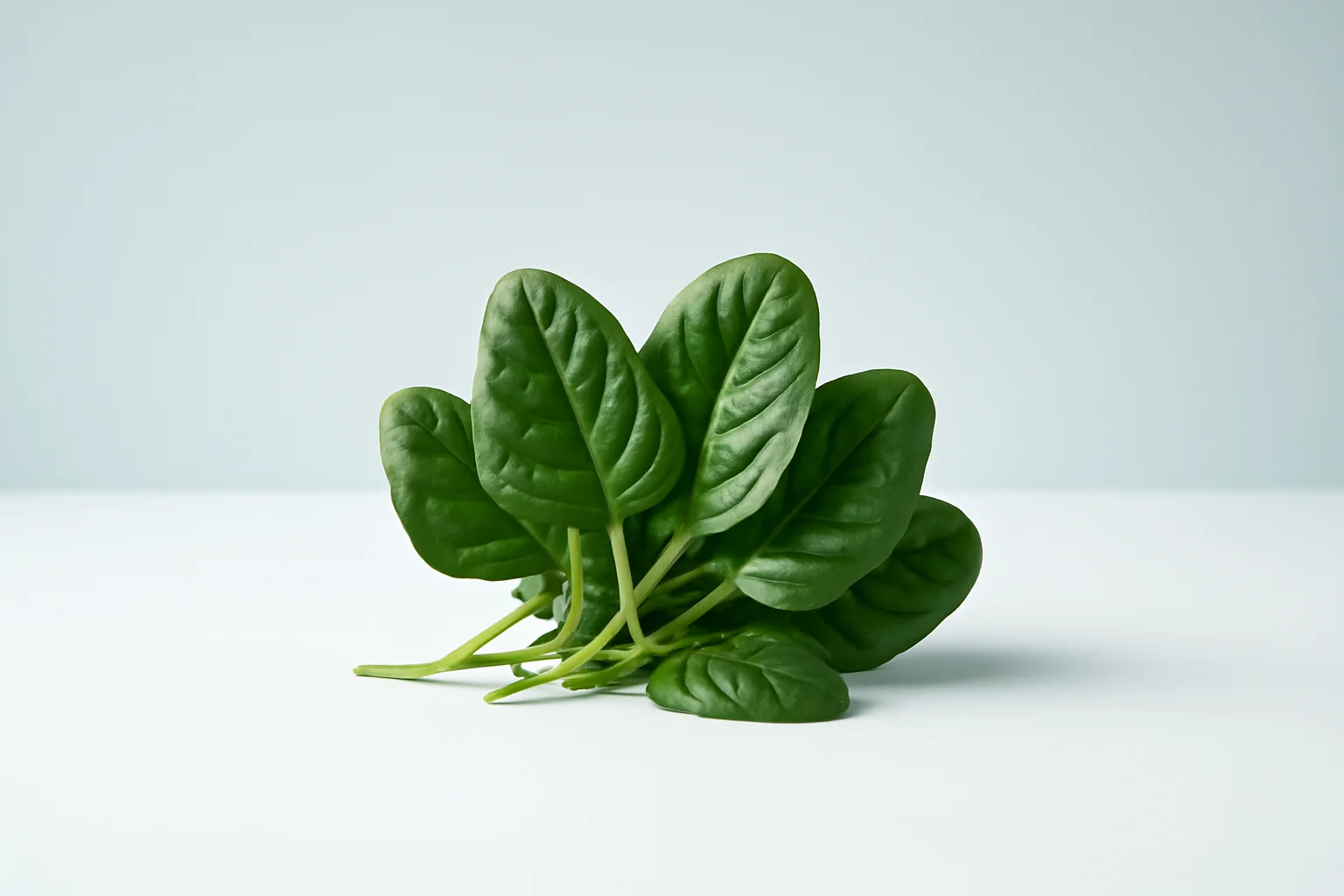
The Beneficial Effects of Mizuna Leaves on Our Health
The mizuna leaf, also known as Japanese mustard spinach, has become increasingly popular among gastronomes and health-conscious consumers in recent years. This vegetable, with its unique flavor and distinctive texture, is not only suitable for salads but also fits well into various dishes. Mizuna is rich in vitamins, minerals, and antioxidants, making it not only tasty but also extremely nutritious. The modern diet emphasizes the use of natural and healthy ingredients, and mizuna perfectly aligns with this trend.
More and more people are seeking opportunities to eat healthier, and the mizuna leaf is an attractive choice for this reason. The vegetable is not only low in calories but also packed with beneficial nutrients that can contribute to improving everyday health. As a traditional part of Japanese cuisine, mizuna’s unique taste and nutrient content have also become increasingly popular in Western cuisines. But why should we incorporate mizuna into our daily diet? Let’s explore the beneficial effects of this special vegetable!
The Nutritional Content of Mizuna Leaf
The mizuna leaf is extremely rich in nutrients that contribute to maintaining health. First of all, mizuna is an outstanding source of vitamins, particularly vitamin C and vitamin K. Vitamin C has antioxidant properties, supports the immune system, and contributes to skin health. Additionally, vitamin K plays an important role in blood clotting and maintaining bone health.
Mizuna is also a plentiful source of B vitamins, which aid in the body’s metabolism and energy production. Folate, B6, and B12 vitamins are particularly important for maintaining cell health. Furthermore, the mizuna leaf is rich in minerals such as potassium, calcium, and magnesium. These minerals are essential for various physiological processes, including muscle function and heart health.
It is also important to mention the fiber content of the mizuna leaf, which promotes digestion and contributes to gut flora health. Fibers help regulate blood sugar and cholesterol levels, which is particularly important in preventing diabetes and cardiovascular problems. Therefore, the mizuna leaf is not only delicious but also nutritious, making it worth consuming regularly.
The Health Benefits of Mizuna Leaf
Consuming mizuna leaf can offer numerous health benefits. One of the most important advantages is that it improves the functioning of the immune system. The vitamin C and antioxidants it contains help neutralize free radicals, potentially reducing the risk of chronic diseases such as cancer and heart disease. A strong immune system helps protect the body from various infections and illnesses.
Regular consumption of mizuna leaf is also beneficial for cardiovascular health. Minerals like potassium help regulate blood pressure, while fibers contribute to lowering cholesterol levels. Maintaining a healthy heart and circulatory system is essential for a long and healthy life.
Moreover, consuming mizuna leaf can aid in weight loss. Its low calorie content and high fiber content provide a feeling of fullness, helping to reduce excess weight. The fibers slow down digestion, thereby stabilizing blood sugar levels, which also contributes to facilitating weight loss.
Additionally, the mizuna leaf possesses anti-inflammatory properties, which can help in treating various inflammatory conditions. The combination of antioxidants and vitamins helps reduce inflammatory reactions in the body, potentially contributing to the prevention of chronic diseases such as arthritis.
How to Use Mizuna Leaf in the Kitchen?
Thanks to the versatility of mizuna leaf, it can be used in a variety of dishes. It is most commonly used in salads, as its fresh, crunchy texture and slightly peppery flavor pair well with vegetables, fruits, and various dressings. Using mizuna in salads is simple and quick, making it an ideal choice for everyday meals.
Mizuna leaf is delicious both raw and cooked. It is excellent for soups, stews, or vegetable side dishes. When cooked, the flavor of mizuna softens slightly, harmonizing well with various spices and other vegetables. It can be used in pasta dishes, where the mizuna leaves quickly soften and serve as a tasty addition.
Many also prepare mizuna in a wok, where it retains its freshness and nutrients when quickly stir-fried. In wok dishes, mizuna pairs well with various meats and tofu, allowing for the creation of delicious and nutritious meals. Additionally, mizuna is a great addition to sandwiches and wraps, making it a perfect choice for healthy fast food.
It is worth trying mizuna with various salad dressings, such as lemon, yogurt, or soy sauce dressings, which enhance the flavors of the dishes. In preparing tasty and nutritious meals, we can not only enjoy the flavors but also take advantage of the beneficial effects of mizuna.
Note: The information in this article does not constitute medical advice. Always consult your doctor for health issues!

